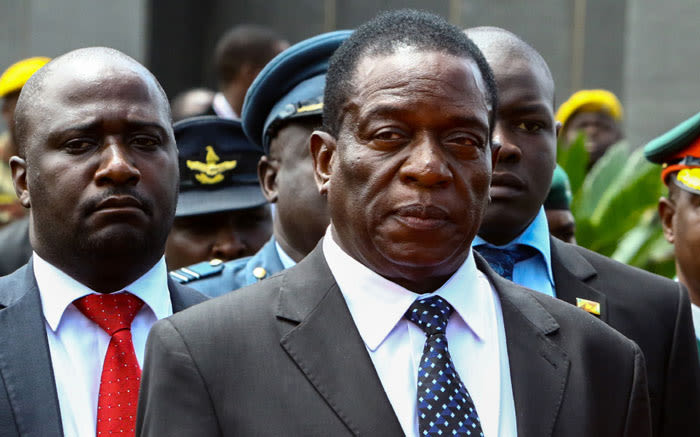Businesses and shops remain closed in Harare, Zimbabwe’s capital as the protest against a hike in fuel prices enters its third day.
Three people, including a police officer, have died and hundreds have been arrested following violent demonstrations since Monday
President Emmerson Mnangagwa, announced a sharp rise in fuel prices on Sunday as a way to improve supplies in a country struggling with the worst gasoline shortages in a decade.
The shortage that started late October 2018 has seen motorists spending nights in queues stretch for kilometres. The president argues that the increment will also deal with rampant illegal trading but the people would have none of that and have, since Monday, embarked on stay-at-home protests called by unions in response to the hikes.
The main labour body, the Zimbabwe Congress of Trade Unions (ZCTU), said the government has no empathy for the poor by introducing the more than 100 per cent hike, AFP reports. Demonstrators have burnt ties and barricaded roads and bus routes on streets in the cities of Harare and Bulawayo, BBC reports.

The latest development is the arrest of Evan Mawarire, a Harare pastor and a critic of former leader Robert Mugabe. Having led a national shutdown in 2016, he is said to have used Facebook posts to urge Zimbabweans to heed the call of the union leaders, according to Reuters news agency.
The South African nation’s largest telecoms company, Econet has sent text messages to customers saying it has been forced by the government to shut down internet service.
Since mid-morning Tuesday, many people have been unable to access social media platforms as internet services in major areas have been cut. Critics say the move is to repress dissent and prevent what is happening from being shared to the world.
Mnangagwa assumed power in November 2017 after the long-serving leader, Robert Mugabe, resigned following a military takeover and demonstrations. Mnangagwa’s administration is expected to revive the country’s economy for growth and development but the reverse appears to be the case.

According to critics, the president has failed to deliver since coming to office as inflation continues to run high while the country faces a severe shortage of US dollar cash and confidence in its bond notes, said the BBC.
Local companies are also not producing enough to satisfy demand as the country continues to import more than it exports. In the midst of the protests, the president is out of the country for a trip to Russia and other Asian countries.
“We want Mnangagwa to know our displeasure in his failure,” a demonstrator, Mthandazo Moyo told AFP.
“[Former President] Mugabe was evil but he listened,” he added.
Meanwhile, the government has accused the opposition of being behind the protests, describing it as a scheme to overthrow the current administration.










